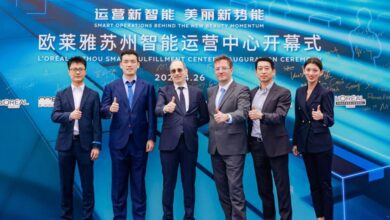Robotics promises big productivity gains in auto industry – but comes with challenges

In a dynamic era of technological advancement, the automotive industry stands at the precipice of a revolution driven by robotics, according to a new research report from GlobalData.
With automation at its core, robotics is reshaping the landscape of automotive manufacturing, driving efficiency, precision, and innovation, the report says. From assembly line optimization to the development of autonomous vehicles (AVs), robotics has significantly impacted the automotive industry, says GlobalData, a leading data and analytics company.
GlobalData’s latest report, “Robotics in Automotive,” provides an overview of the “robotics” theme and identifies automotive challenges, such as ESG, CASE megatrends, geopolitics, labour shortages, cost efficiency, high inflation, and supply chain disruption, and an impact assessment of robotics on the automotive industry, addressing these challenges.
Joseph Simpson, Associate Thematic Intelligence Analyst at GlobalData, comments: “Automation is the fastest way to improve productivity for automotive manufacturers. In factories, plants, and warehouses, human staff work alongside robots that are incredibly good at performing repetitive and dangerous tasks but do not look or behave like humans. Integrating robotics in automotive manufacturing has increased precision, reduced human error, and improved safety conditions.”
Robotics in Automotive – Thematic Intelligence
Access the most comprehensive Company Profiles
on the market, powered by GlobalData. Save hours of research. Gain competitive edge.

Company Profile – free
sample
Your download email will arrive shortly
We are confident about the
unique
quality of our Company Profiles. However, we want you to make the most
beneficial
decision for your business, so we offer a free sample that you can download by
submitting the below form
By GlobalData
Furthermore, the advent of AVs has deepened the role of robotics in the sector, requiring sophisticated artificial intelligence (AI) technologies for navigation and decision-making.
Simpson concludes: “However, the technological shift towards industrial automation also presents challenges, including job displacement and the need for workforce reskilling. Companies must also navigate regulatory uncertainties around AVs, such as liability in cases of accidents or cybersecurity breaches. Despite these challenges, the continued advancement of robotics promises to drive further innovation and growth in the automotive industry.”
See also: Robotics in Automotive – Thematic Intelligence
ABB calls for auto supply chain to embrace automation



